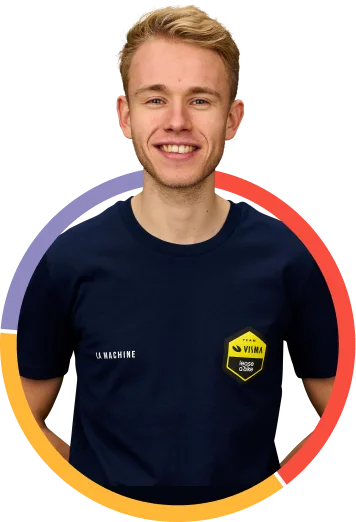Esther Visser fueled for Ironman 70.3 World Championships
Meet Esther, the unstoppable triathlete and postdoc. Discover how her journey with FoodCoach transformed her perspective on nutrition and athletics, and why missing monthly periods should never be a part of a healthy, active lifestyle.
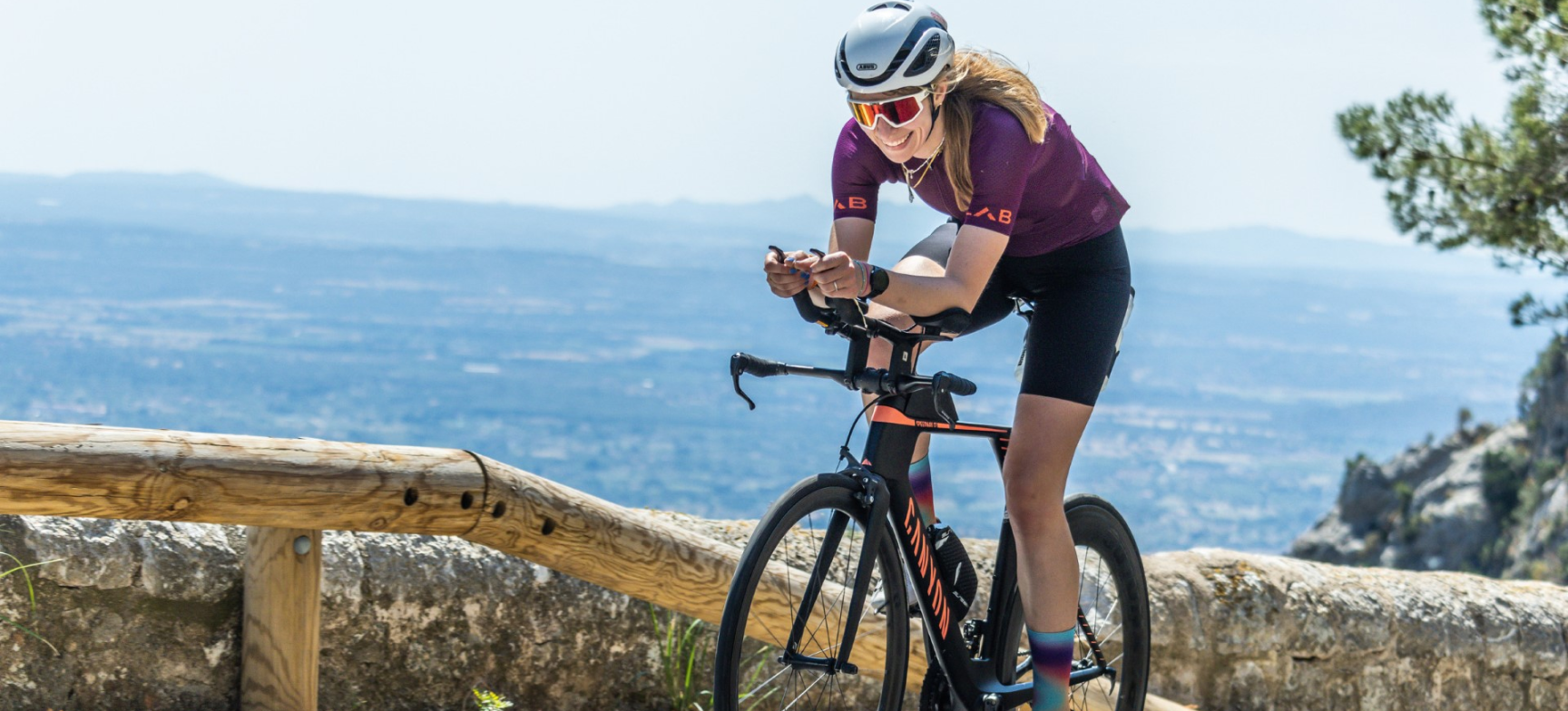
Sub-10 hour dream
My sports dream is to become the best version of myself, have fun and perform to the best of my capabilities. This might sound a little abstract, but it is the goal that keeps me motivated every day in training. In 2021, I did my first full distance triathlon and finished in a time of 10:00:34. It was an unexpectedly fast time for me, but those 35 seconds separating me from that magical boundary of a sub-10 are fuel for another year of triathlon training. Next season, I am aiming to finally race and get that sub-10!
That awful sport... swimming
My road into the world of triathlon has been bumpy. I have loved cycling ever since I was a teenager, and towards the end of my studies I took on running. If you already enjoy doing two out of three sports of triathlon, then the last one should be feasible too! Or so I thought... Swimming is an awfully complicated and technical sport, and during my first triathlon sprint distance race people literally swam over me, making it unable for me to breath. After this unfortunate start, I really enjoyed the remainder of the race. After a few more seasons struggling in the water and lessons from very skilled and patient swim coaches, I nowadays, to my own surprise, often enjoy swimming!
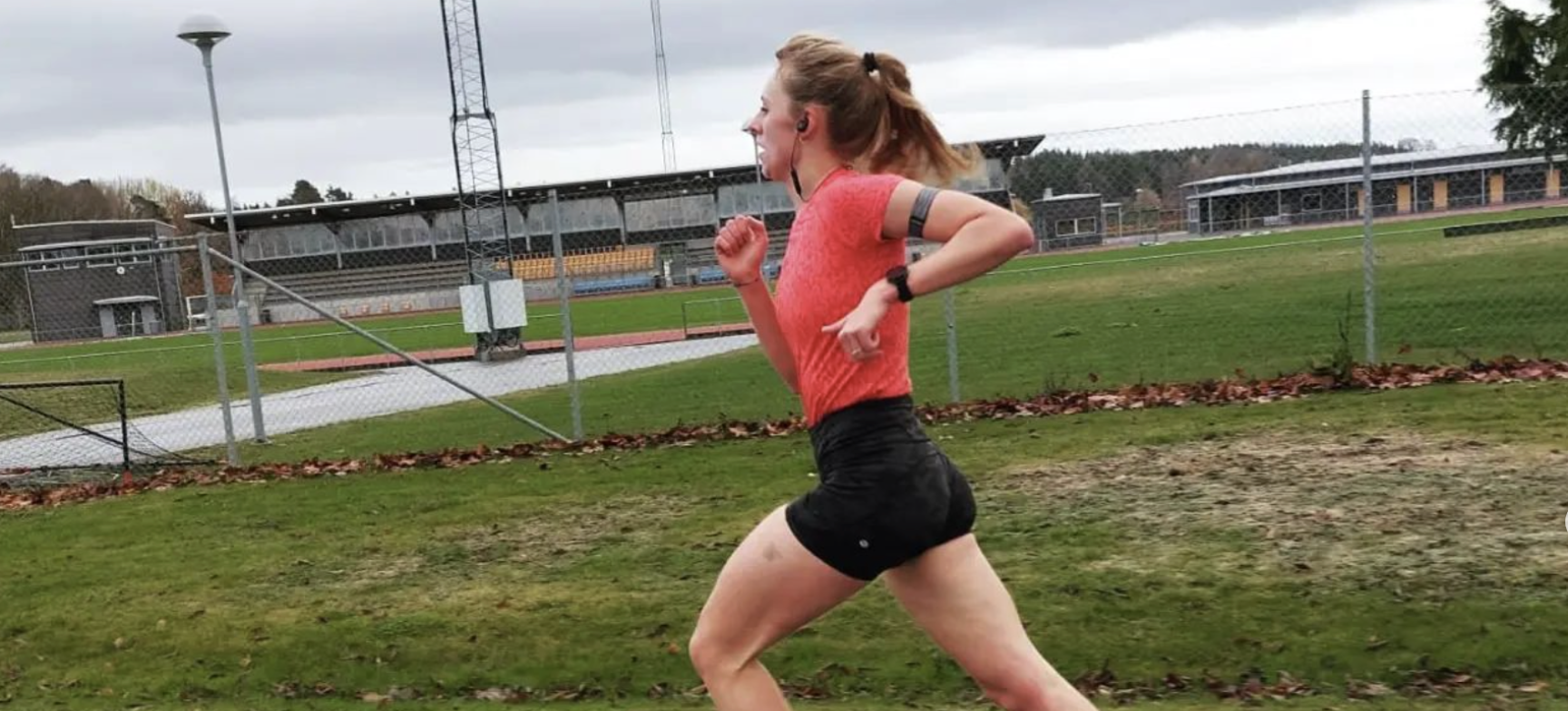
How I fell in love with triathlon
In 2019 I participated in my first middle distance triathlon and I was hooked. I have always enjoyed endurance events, like cycling from Amsterdam to Paris in a day, or a multi-day mountain bike trip in Kenya, but the atmosphere amongst athletes at this triathlon was fantastic. It made me feel like I wanted to be a part of it.
Soon after, I joined a triathlon training group and got a coach, who made me a personalised training schedule. The structured training sessions resulted in significant improvements. Being surrounded by passionate people, really made me fall in love with the sport. Even though I previously thought that people doing full distance triathlon were a tad crazy, I learned that it is actually possible to combine a successful career and family with triathlon. Therefore, I wanted to challenge myself and find my limits by participating in a full distance triathlon, whilst finishing my PhD research in neuroscience.
Underestimating my body's request for energy
Over the months, my training load and fitness increased, and so did my body's request for energy. I tried to eat as much as I could and my colleagues would regularly make fun of enormous amounts I ate during lunch break. I ate healthy in general, but would not skip cake, chocolate, or desert. During longer training sessions I fueled on sports drinks, electrolytes and energy gels. However, it apparently was not enough to support my body with sufficient nutrients and fuel for all those training sessions. I was, unintentionally, under-fuelling.
For much of my triathlon career, my periods have been absent, or irregular at best. In off-season, i.e. in times of rest and lower energy expenditure, they came back. By talking to my female training partners and by reading scientific studies on this topic, I realised that this is very common: up to 66% of female athletes have absent or irregular periods, compared to only 2-5% in the general population. It is a sign of your body that there is currently not enough energy available to potentially reproduce. This lack of energy can lead to RED-S syndrome .
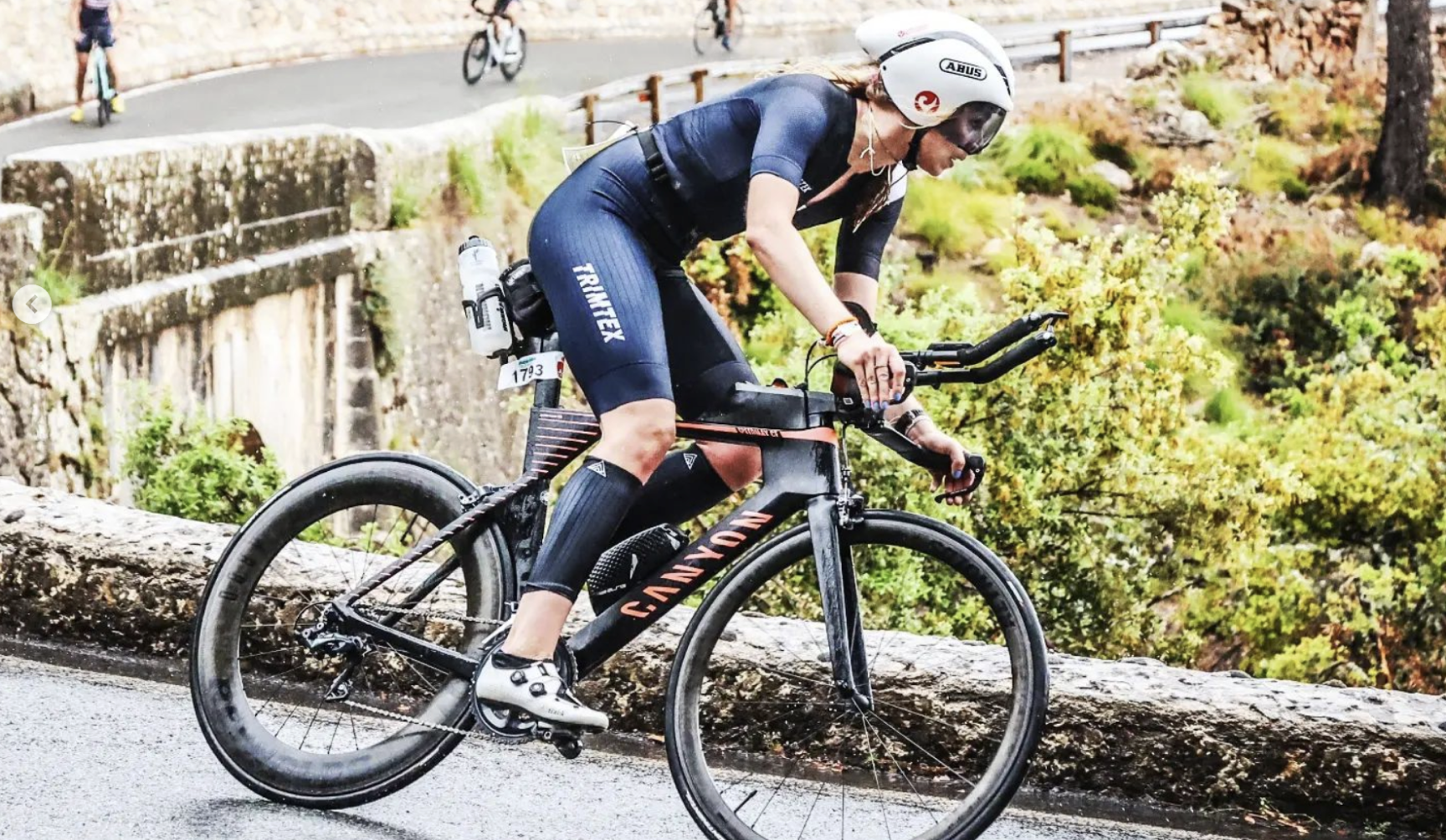
Honestly, I never worried too much about my missing periods. I considered it even a convenience at times. I did not miss the menstruation cramps messing up my training nor the food cravings induced by differences in insulin sensitivity throughout the menstrual cycle. Moreover, when I was out for a five-plus hour ride with a group of guys, it was rather convenient for me not having to ask to stop for a sanitary change.
I was shocked...
Early 2023, in preparation for my qualification race for the Ironman70.3 World Championship, I downloaded the FoodCoach app. It was mostly just out of curiosity. I filled my training sessions in the app, and when it showed me how much I needed to eat, especially on the hard days… I was shocked! I started using the app very consistently in my toughest training blocks leading into that race, and I felt so much stronger and energised than previously. Besides, I noticed that my recovery was faster and I reaped the benefits of higher quality training sessions. Also, my periods came back, despite the high training intensity and volume. In May 2023, I manage to qualify for the world championship on Mallorca, an amazing experience.
Meals in between meals
In the months after the race I used the app more leniently, to get a rough idea of how much I should eat. An important lesson I learned from the FoodCoach app is how important the nutritional balance and content of snacks is. One banana is not a sufficient snack if you train heavily. By increasing the nutritional value of the “meals in between meals”, I feel less hungry and more stably fueled throughout the day. Finally, the app taught me to tailor my food intake to my training intensity, so I eat moderately on recovery days, and a lot more on the hard days.

“Irregular periods are a sign of imbalance and insufficient energy, and even though they are inconvenient at times, they are part of being a female athlete.”
My advice for you
My main advise to other (endurance) athletes is to become aware of your energy needs, that are likely higher than you think. Food is fuel, and we need enough fuel to reach our goals and fulfill our dreams! This holds true especially for female athletes training in a male-dominated sport. Irregular periods are a sign of imbalance and insufficient energy, and even though they are inconvenient at times, they are part of being a female athlete. Periods should be there. Period.
Want your personalised nutrition plan? Download the FoodCoach app
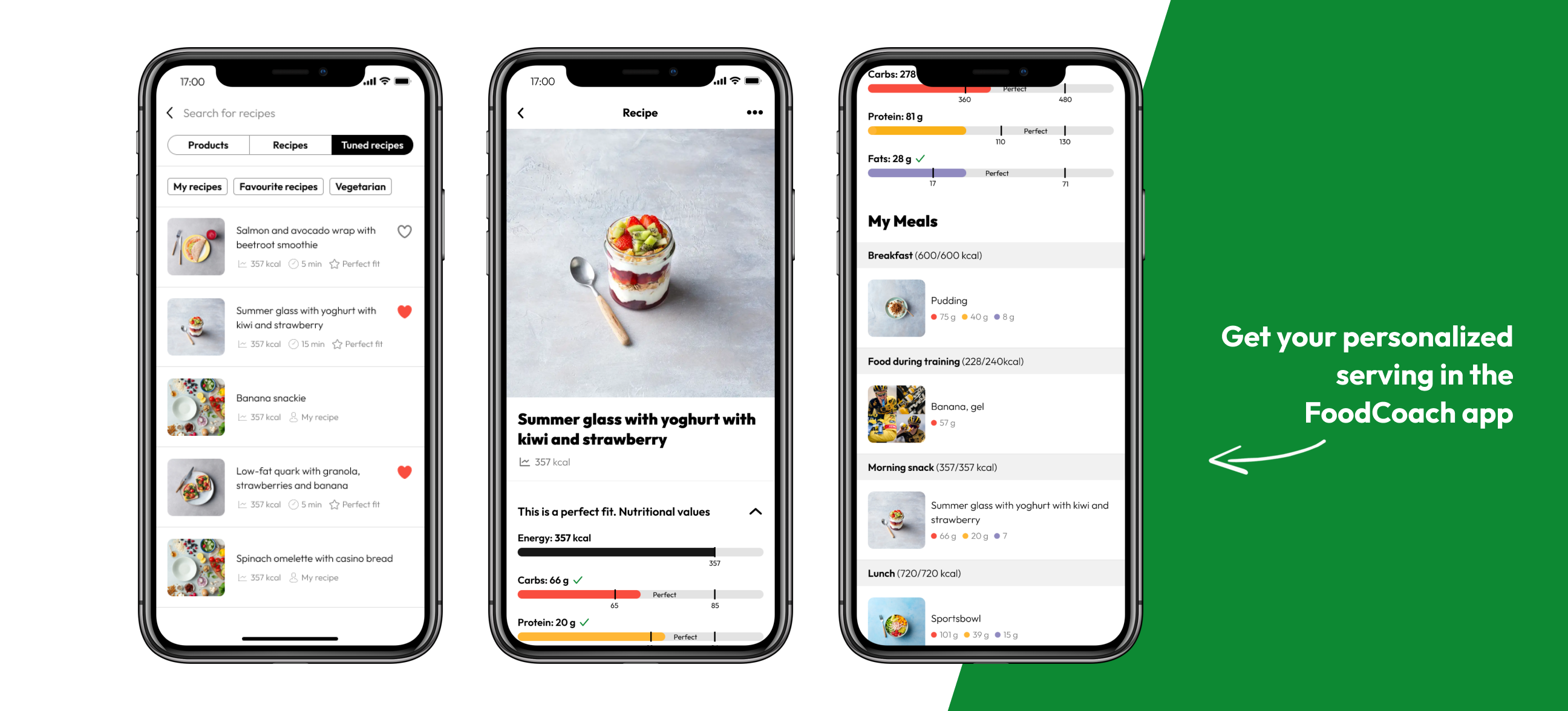
Read more
Definitions
- - Middle distance triathlon: 1.9 km swim, 90 km bike, 21.1 km run
- - Full distance triathlon: 3.8 km swim, 80 km bike, 42.2 km run, also known as the Ironman distance.
- - RED-S syndrome: Relative Energy Deficiency in Sport is a syndrome characterized by insufficient energy intake relative to the energy expended during athletic activities, which can lead to a range of physical and physiological issues, including impaired performance, injuries, and menstrual disturbances in females.
References
Share your FoodCoach story
We love to hear about your challenges and successes with the FoodCoach app. Every month we pick the most iconic story and reward that with a limited edition FoodCoach kitchen scale.
